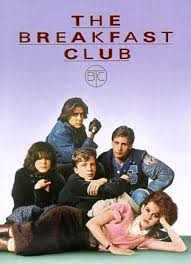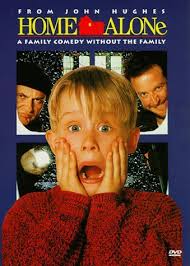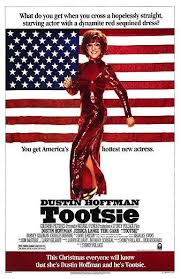Part 2: Generation X and Millennials (This essay is the second of a two-part series)
Generational cohort theory asserts that much of our outlook and many of our values come to us between the ages of 10 and 20—when we first conceptualize and then step into the world as our adult selves. What was popular at the Cineplex when we were each in these formative years becomes a great portal into our own generational uniqueness.
When looking for generational trends in movies, it is not important what movies any one person liked to watch, what matters is what was popular (making money and/or winning awards) when people were stepping into adulthood.
What do the popular movies of your formative years say about your generation?
1983 to 1992 – What was popular as Generation X grew up?
- Tootsie
- Victor/Victoria
- The Crying Game
- Trading Places
- Beverly Hills Cop
- Aliens
- Terminator 2: Judgment Day
- 3 Men and a Baby
- Flashdance
- Rambo
- Platoon
- Good Morning Vietnam
- Dances with Wolves
- Unforgiven
- Batman
- Home Alone
- Ferris Bueller’s Day Off
- Big
- Honey I Shrunk the Kids
- Dead Poets Society
- Fatal Attraction
- Silence of the Lambs
- Do the Right Thing
- Goodfellas
- Breakfast Club
The Gen X Mirror:
Generation X (born between 1965 and 1980) grew up in a world in which the US had lost its first war; the grind of governance had diminished the luster of many of our nation’s leaders. One President had even resigned under the specter of unprecedented criminal activity. With this climate as a backdrop, the birth-rate plummeted, and the traditionally structured family fractured. Divorce and the single-parent household became common. These familial and socio-economic changes led to a generational corrosion of faith in the structures, traditions, and hierarchies that had long defined the culture and families.

The movies that were popular at the Cineplex when many Gen Xers were growing up reflect the gritty skepticism that would become a hallmark of this generation. So many of these movies directly challenge (dramatically in some–comically in others) traditional socio-economic, gender, and racial roles. Women are action heroes; black characters are prominent where whites would have been expected; rich and poor swap stations, and men and women switch places.
In addition to social roles dissolving, families in these movies have radically changed as well. In contrast to the Traditionalist and Baby Boomer movies, many of these films include and/or are made for children or young people—but almost all of these examples show young people disconnected from adults and direct parental involvement or supervision. Gen-X movies have latch-key kids everywhere—example upon example of kids raising themselves, kids whose parents are, for whatever reason, gone. Generation X is known as independent-minded and naturally skeptical of and guarded against formal and traditional institutions and commitments—all common themes that were playing out at the corner movie house.
2001 to 2010 – What was popular as Millennials grew up?
- Harry Potter 1, 2, 3, 4, 5, and 6
- Shrek 1, 2 and 3
- Monster’s Inc
- Star Wars: II and III
- Night at the Museum
- Pirates of the Caribbean 1, 2 and 3
- Avatar
- Meet the Parents/Meet the Fockers
- War of the Worlds
- Lord of the Rings 1, 2 and 3
- Spiderman 1, 2 and 3
- Cars
- X-Men 1, 2 and 3
- Transformers 1 and 2
- Iron Man
- WALL-E
- Kung Fu Panda
- Twilight
- Crash
- The Departed
- Slumdog Millionaire
- Finding Nemo

The Millennial Mirror:
Millennials (born between 1981 and 2000) are internet natives. Whereas most Gen Xers have had computer technology close by for much of their lives, Millennials have never known a world without internet connectivity and the veritable flood of options and data that this connectivity enables—Facebook, Twitter, wiki answers, free music to order, commercial-free TV geared to my age and tastes streaming on my hand-held device. These are just ground truths—as-is realities—to Millennials. No wonder the result is a generation feeling empowered and impatient for answers, inclusion and promotion.

As a generation, Millennials have both the benefit and curse of being parented by both Baby Boomers and Generation X—two generations that both experienced some alienation and disconnect from their parents’. As a result, Millennials have been a fairly protected (some would say doted-on) group. In families, in schools, on teams–Millennials have long been the center of attention. As a result, Millennials tend to accept authority, being open (often eager) to engage with organizations and to be a part of the system. As a generation, Millennials have a well-documented drive to community and social responsibility.
The movies that were popular as Millennials grew up reflect this radical shift that has put young people at the center of things. In marked contrast to the other generations’ movie lists, nearly every film mentioned is either for or about kids or is made with a family audience in mind. Look back at the Boomer’s movie list (in Part 1 of this essay), and you see that there is scarcely a movie you could take a child to see. Now it is odd for a movie to exclude this age group. This fact reinforces the idea that this generation (who were the target audience at the time) is at the center of the action.

Also of note is that most of the movies—while often animated and in the fantasy realm—actually have rather traditional narratives that are respectful of authority. There is a conservatism and traditional arc to most of these narratives. Through a struggle, the protagonist (a pretty clear “good guy or girl”) bests the antagonist. Do what you are supposed to do, and you’ll win in the end—these movies reinforce this generational value clearly and proudly.
Movies don’t create our values or behavioral patterns, but they do a very good job of reflecting and even explaining them. What’s going on in our culture right now? Well, let’s go down to the neighborhood Cineplex and find out.
Click here to read part 1 of this blog–Movies as a Generational Mirror–Part 1



Hile,
I enjoyed your blog on Movies as a Generational Mirror immensely! It brought to mind the great value I received from reading Generation Translation: Tools for Bridging the Gap, that you and Rita co-authored and in which you introduced, “movies as a mirror.”
From the time I was allowed to attend movies, (1st Grade) and through today (in my 70’s) I have been an obsessed “movie goer!”
I’ve seen 100% of the Traditionalist, Boomer, and Gen X movies you listed and over 50% of the Millennial movies. I am definitely hooked on movies and believe they have significantly influenced my development as a child and adult; and continue to do so, in both good and bad ways. My development as a Traditionalist has clearly been influenced by the Movies I have seen.
I appreciate your detailed descriptions, confirmations and conclusions of the movie makers presentations, and your discussion of cultures and values; Your insight into current mores, i.e., customs, norms, and behaviors that are acceptable to the society or social group and underlying belief systems, is impressive. As it relates to Generational application, I believe you’re “right on!”
You say, “These movies did not give Boomers (implying also Gen X, Millennials, or Traditionalists) these qualities and outlooks” (those you detail in your essay). It’s my personal experience that they do. In fact, they encourage and infuse certain belief and behavior foundations into each generation. They consistently substitute for parental and other adult guidance. My military studies which included and involved the process of “brainwashing” is defined as, ” a method for systematically changing attitudes or altering beliefs.” This definition clearly fits the movie industry’s methodology of being a major contributor of developing the belief and value systems, and behaviors of each of the generations you describe.
When Rita and I founded our Hollywood film production company in Burbank, CA, we became deeply involved in the movie production culture and met with numerous film leaders and script writers and our team read hundreds of scripts. In most cases, those controlling the movie industry have clear agendas to influence worldwide movie goers’ beliefs, values and behaviors and they clearly do. The fact that movie goers spend literally thousands of hours being “brainwashed” attending movies not only in theaters but on TV and streamed movies on their computers plays a large part in who they become. Because movies are prevalent in every generation, each is affected along with other factors you have described.
Therefore, I believe “these movies did give members of each generation significant development of their “qualities, outlooks,” (and behaviors).
Movies have had a major impact in changing attitudes and altering beliefs of individuals in each generation, resulting in significant culture and value changing effects on each. In my opinion, regardless of skin color or gender, or any other currently defined category of diversity, movies are produced by men and women who intensely desire not only to entertain but to influence the behavior and beliefs of each of us, in every generation.
Intuitively and factually, it’s obvious to me that they have succeeded.
Ron
Hey Ron,
Thanks for the reading, liking and taking the time to comment on the post. I really appreciate it.
I also appreciate your comment that these movies do and have brainwashed us as viewers. My statement that these movies did not cause these generational attitudes is more accurately expressed as “these movies did not directly and singly cause these generational values and attitude, but they certainly were part of the process.” I believe that reality is something less than your brainwash statement and more than my suggestion that these movies were not causal. The power of the collectivity of our popular culture (movies, TV, news, politics/political discourse, music–and these days, social media) is a powerful molding force that both reflects the current values while also reinforcing those values.
If it is true and you and I are right that popular movies both reflect today’s values while also pushing/reinforcing those values, then I submit we are and will be in good shape. Look at the movies right now. Avengers Endgame has just become the biggest money-maker in movie history–a global phenomenon. It is a movie about sacrifice, effort and teamwork to overcome powerful odds. Forces of good pay a high price–in some cases, the ultimate price–to save the things that ultimately matter–family, freedom, justice, life. It is really a very Traditionalist-friendly movie. I hope you and I are right that movies can drive our values and culture. This movie, as an example, suggests that we are moving in a good direction.
Thanks for reaching out.
Hile Rutledge